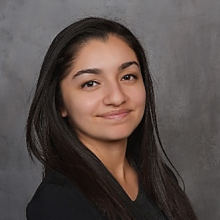In a few sentences, what is your role at the agency you work for?
I have had the unique opportunity to work with three different branches at the Eunice Kennedy Shriver National Institute of Child Health and Human Development (NICHD) including the Pediatric Trauma and Critical Illness Branch (PTCIB), Child Development and Behavior Branch (CDBB), and Office of Health Equity (OHE). In the PTCIB and the CDBB, I support program officers. What in the world is a program officer? I’m glad you asked. Program officers are representatives, scientific experts, liaisons, stewards, and administrators all at once. As representatives, they represent the National Institutes of Health on various working groups and federal interagency task forces. As scientific experts, they draw on their expertise to create funding opportunities, write publications, and develop workshops to help move the field forward. As liaisons, they are the bridge between the scientific research community and NICHD. As stewards, they oversee portfolios (i.e., NICHD-funded research typically related to their expertise) and ensure that NICHD is investing in cutting-edge research that supports its mission. As administrators, they coordinate with NICHD staff throughout the application and grant process to ensure adherence to policies and regulations. In the OHE, I support the extramural liaison’s efforts to advance scientific workforce diversity and health equity research.
What interested you in becoming an SRCD Policy Fellow?
I absolutely love doing research. However, over time, I realized that no single study I am part of can impact children and families the way a single policy can. Of course, conducting research is important for informing policy, but I was not able to see this connection from my vantage point as a researcher. The SRCD Policy Fellowship has given me the amazing opportunity to finally see that connection and be part of the bridge that connects developmental science and policy.
How do you think the fellowship has helped further your career?
The fellowship has challenged me to use my skills and expertise in novel ways. For example, I was trained to write empirical articles about research projects. Currently, I am writing non-empirical articles where the purpose is not about sharing research findings but helping move the field forward. It is opportunities like these and others that are making me a more well-rounded job candidate for both academic and government positions.
What words of wisdom might you pass on to someone who is interested in SRCD’s fellowship program?
There will always be a need for your expertise as a scientist in government. You have so much to offer, even if it may not feel like it. As someone who came to the fellowship straight out of graduate school, all I knew was academia. I felt like my skills were only useful in this niche space and the thought of getting out of my comfort zone was scary, but I am so glad I did. Your skillset is valuable and needed!
Why should someone else apply for this fellowship?
I would urge anyone who is interested in this fellowship to apply for it! This is such a unique opportunity. It is one thing to learn about the connection between science and policy and quite another to be part of it! Additionally, entering the policy and government world as a fellow, rather than a full-time employee, will allow you to truly focus on your own career goals and skills as it is built into the fellowship.
What do you like to do in your free time?
I love hiking, eating, and reading!
